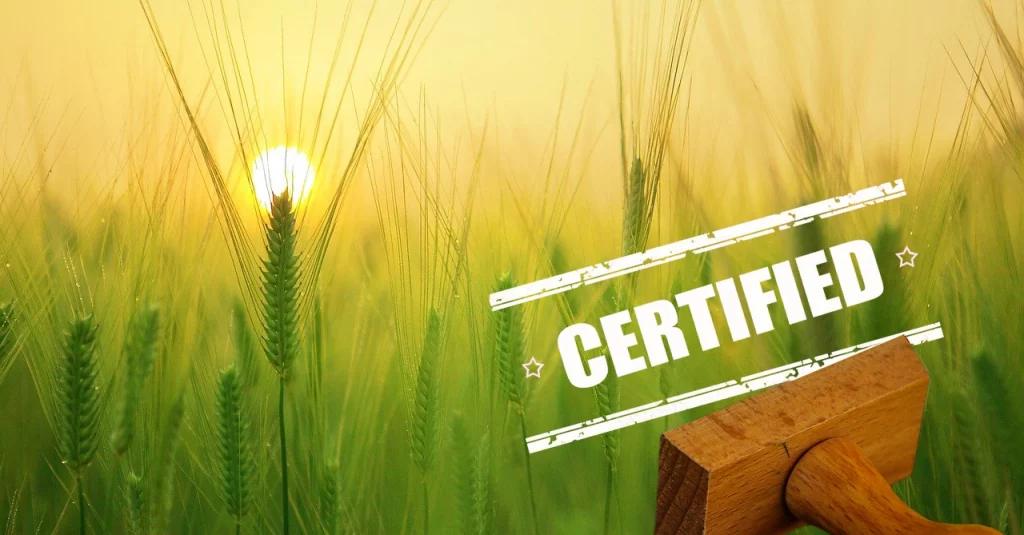
01 Dec Quality Agriculture: The Value of Certifications
Quality certifications play a key role in modern agriculture, ensuring safety, sustainability, and traceability throughout the supply chain. O.P. Altamura, engaged in the production of leafy vegetables in the Sele Plain, holds numerous international certifications that attest to the excellence of its products and its commitment to high standards. Let’s take a look at why these certifications are important and how they benefit both producers and consumers.
Food Quality and Safety Certifications
- BRC ( British Retail Consortium): This certification ensures that O.P. Altamura meets strict food safety standards during all stages of production. It is particularly important for exporting products to the United Kingdom and other markets that require high levels of safety.
- GLOBALG.A.P. and QS-GAP: Both certifications promote sustainability in agricultural practices, ensuring that products are grown according to safe and environmentally sound practices. GLOBALG.A.P., in particular, covers aspects such as water management, biodiversity protection, and worker welfare.
- GRASP ( GLOBALG.A.P. Risk Assessment on Social Practice): This add-on module to GLOBALG.A.P. certification focuses on workers ‘ rights and working conditions in agriculture. With GRASP, O.P. Altamura demonstrates its commitment to the safety and well-being of agricultural personnel.
Sustainability and Environmental Certifications
- LEAF Marque: LEAF (Linking Environment And Farming) certification attests to the adoption of sustainable farming practices that respect the environment. This standard includes control of pesticide use, water management, and soil protection.
- BIO SUISSE and Organic: These certifications ensure that products are grown according to organic farming principles, without the use of chemical pesticides or synthetic fertilizers. O.P. Altamura, with the BIO SUISSE label, is committed to meeting the stringent standards required by the Swiss organic market.
- Field to Fork: This program ensures that every stage of production is traceable and verifiable, providing transparency from the field to the consumer. It is especially important for those who want to know the origin and quality of the food they consume.
Importance of Traceability and Social Responsibility.
- GlobalG.A.P. Chain of Custody: This certification ensures that products are traceable throughout the distribution chain, strengthening consumer confidence in the quality and origin of leafy vegetables.
- SEDEX: The SEDEX platform supports ethical supply chain management, promoting respect for human rights and social responsibility on farms. With SEDEX, O.P. Altamura demonstrates its commitment to a transparent and socially compliant supply chain.
Why Are Certifications Important for Consumers and Producers?
These certifications offer guarantees to both consumers and producers. For consumers, they represent concrete proof of the quality, safety, and sustainability of the products they buy. For producers, like O.P. Altamura, they constitute a certification of excellence that opens doors to international markets and strengthens customer confidence.
O.P. Altamura’s quality certifications are evidence of an ongoing commitment to excellence in agricultural production. The combination of international certifications not only ensures the safety and sustainability of leafy vegetables but also elevates the company’s image in the global market. For consumers, choosing certified products means investing in quality, transparency, and respect for the environment.
